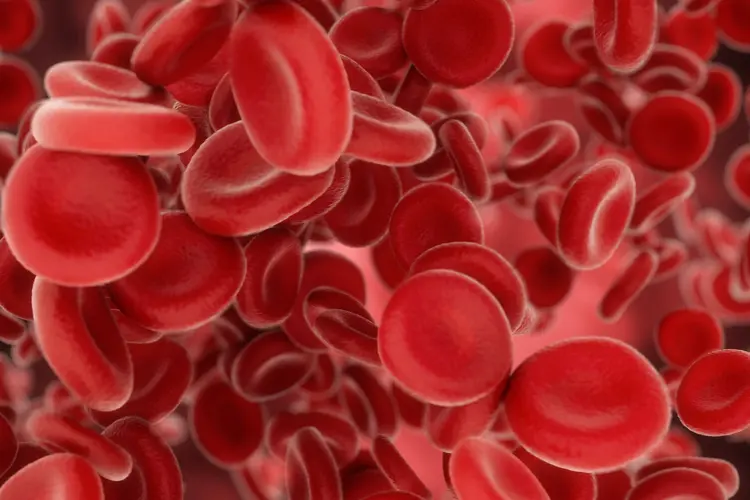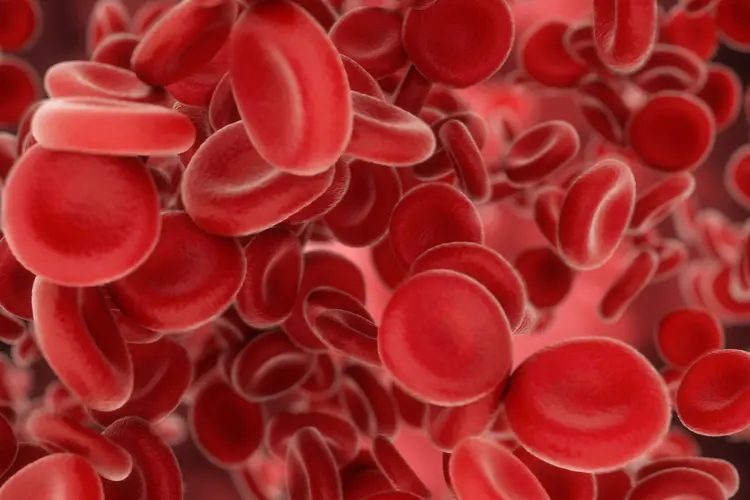The mission at Media Health Group is simply to give the most reliable, easy access and understandable information to help individuals make better decisions about their health. We are also passionate about enhancing the understanding of the public about medical procedures such as the RBC blood test, thereby enhancing proper health care for everyone.
Blood tests are definitely a normal procedure but also a very important aspect of medical diagnostics. RBC Count (Red Blood Cell Count) is undoubtedly one of the most carried out blood tests. As opposed to how simple it is, the RBC test gives a clear view into a patient’s general well being, specifically for things like anemia, oxygen transport, and probable overlooked conditions.
In this article, we will stress on the value of the RBC blood test, the meaning of high or low RBC counts, the method of conduction, the actual look of normal ranges, and exactly how health professionals diagnose the results in a much larger aspect of healthcare.
In simple terms, The RBC blood test is the measurement of the amount of red blood cells in a specific volume of blood. Red blood cells are very important parts of the blood that help in sending oxygen from the lungs to the entire body and also bringing carbon dioxide back to the lungs in order to exhale.
An RBC test is usually considered as a part of a Complete Blood Count (CBC) panel, which in turn also takes measurements of white blood cells (WBCs), platelets, hematocrit and hemoglobin.

The amazing thing about your RBC count is that it can help to show a lot about your general well-being and also aid you in finding out a lot of medical conditions like:
- Heart disease
- Anemia (a red blood cell deficiency)
- Blood cancers
- Dehydration
- Chronic lung diseases
- Nutritional deficiencies
- Kidney problems
- Bone marrow disorders
It is important to note that this test is very basic and not too painful. So firstly, a healthcare specialist takes a little sample of blood from you normally from the vein in your arm. Then that sample of blood is sent to a lab and then the amount of red blood cells is calculated using either manual method or an automated machine.
Special Preparations:
Normally, you don’t need any special preparation unless the RBC test is under a bigger blood panel that needs you to fast. If that is the case then your doctor would inform you of that.
Time That Blood was Taken:
The process of blood drawing normally takes less than five minutes. You can usually get the results of the test within a few hours or maybe in a few days, it all depends on the institution.
These values can differ a little bit between institutions and it is also dependent on some factors like sex, status of hydration, age and altitude. There are also some different general ranges for men, women and children. For a man, his mcL can be from 4.7 to 6.1. For a woman, her mcL can be from 4.2 to 5.4 and a child’s mcL can be from 4.1 to 5.5.
Note that mcL means microliter.
When you hear the term low red blood cell count, that means that your body is low on RBC production or that the RBCs are not replaced as fast as they are being lost.
Some possible causes are pregnancy, iron-deficiency anemia, chronic kidney disease, too much hydration, vitamin B12 or folate deficiency, bone marrow disorders, internal bleeding and chronic inflammation.
Some symptoms are quick irregular heartbeat, tiredness, pale skin, cold hands and feet, shortness of breath and dizziness.
When you hear the term high RBC count, that might mean that there is too much thickness of the blood, which can further cause some serious complications like strokes or blood clots.
Some possible causes of this are erythropoietin caused by tumors, dehydration, lung diseases, smoking, polycythemia vera (a bone marrow disorder), heart disease and high altitude living.
Some symptoms are headache, enlarged spleen, blurry vision, nose bleeding, itchiness and high blood pressure.
For low RBC Count, some methods like iron supplements for iron deficiency, anaemia, attending to some conditions like kidney disease, vitamin B12 and blood transfusion if the case is very severe.
For high RBC count, some methods phlebotomy, adjustments in lifestyle, oxygen therapy for chronic lung disease and some medication that can help to reduce bone marrow production
If you have symptoms like weakness, tiredness or even shortness of breath, a healthcare specialist might ask for an RBC blood test just as a routine check up or even before a surgery. It can also be used to note down responses to chemotherapy, keep an eye on chronic health conditions and even monitor recovery.
Though all these three tests are part and parcel of the CBC and are even related, they are ultimately different
- RBC count shows the number of red blood cells.
- Hemoglobin shows the protein carrying oxygen in RBCs.
- Hematocrit shows you the percentage of the volume of blood that is constituted of RBCs.
But usually, if you want to look at the entire view of red blood cell health, you have to look at the three of them together.
No, it is not required to fast unless you have been strictly told by your healthcare provider or doctor.
Yes. If you undergo strenuous exercises or are dehydrated, it can lead to momentary rise in RBC levels.
For the majority it is enough to take a routine test once a year, but if you have a chronic condition, then you would need to be tested more often.
Yes. If you eat food low in ion or vitamin B12, it can contribute to a lower RBC count, meanwhile a balance diet can help to regulate your RBC levels.
This is a rare blood cancer in which there is an overproduction of RBC in the bone marrow which then lead to high level of blood clots or thickened blood.
Despite the RBC blood test been a little part of usual laboratory panel, note that it has an importance in diagnosis. Its importance ranges from helping identify anaemia to noting more serious conditions, it also helps to give a view on how your body is being functional on a cellular level.
In the process of trying to comprehend what the RBC test measures and the meaning of abnormal results, you can be part and parcel of taking care of your health. It doesn’t matter if you are handling a chronic condition or just simply trying to stay healthy, this blood test is very vital.
